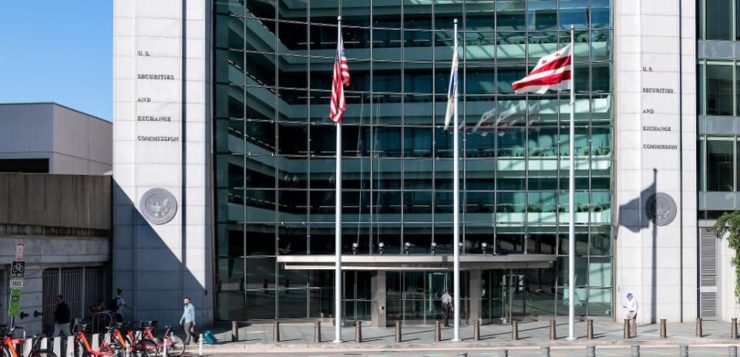A few months ago the United States Securities and Exchange Commission (SEC) announced that it will hold a public forum to discuss blockchain and crypto assets.
This event, which will take place on May 31st in Washington D.C., is the second of its kind; yet, it undoubtedly holds more weight because of where the industry currently stands.
The forum will be led by FinHub, also known as the Strategic Hub for Innovation and Financial Technology, a new division of the SEC designed to directly engage and deal with all things crypto.
A press release issued by the SEC hasn’t given us much information as to the main talking points, only that the forum will focus on “active engagement with market participants on new financial technologies,” and will include “panelists from industry and academia,” in order to “foster greater communication and understanding around issues involving DLT and digital assets.”
Definitely a step up in terms of trying to understand and incorporate the new technology.
Just a few days ago, the SEC released the forum agenda to the public, shutting down speculation as to what topics would be discussed, and which ones would be left off of the itinerary this year.
The panel discussion, which boasts panelists from Deloitte and Ernst & Young, to IBM and Fidelity, will largely focus on how crypto can be adopted, both by the traditional financial sector and the mainstream audience.
Discussions will be revolve around the considerations of trading, capital formation, investment management and use cases for the financial market.
In short, topics that will be covered will focus on initial coin offerings, cryptocurrency platforms, “DLT innovations, and how these technologies impact investors and the markets.”
While there is much anticipation surrounding the forum, there is also a bit of hesitation and anxiety among the crypto community as all eyes look to May 31st.
First and foremost: ICOs.
When it comes to the relationship between blockchain and the SEC, ICOs are itsy Achilles Heel. The SEC was quick to act and shut down the 2017 ICO frenzy – and looking back it was the very right thing to do.
Many scam projects raised money while guaranteeing futuristic rubbish, many people have lost money and some founders even ran away not leaving a trace behind.
Throughout 2018, the SEC began to crack down on crypto companies through investigations and regulations until they were basically extinct; celebrities who had endorsed ICOs were also given the third degree about any illegal involvement.
Since the crackdown on ICOs, we’ve seen attempts for replacements: TGEs, STOs, and most recently IEOs. With each and every alternative to ICOs, the SEC must determine the most efficient way to approach and regulate the situation, if at all worthy of being regulated.
The forum at the end of this month is at a crossroads for the industry, and some think could represent a turning point in the strained relationship between crypto and the SEC.
Anyone who is a diehard crypto supporter, is hoping that this upcoming forum will give us a different outcome than we’ve seen in the past when it comes to how the SEC handles blockchain.
What could be the main points of debate in order to make 2019 the year crypto goes mainstream?
“They should consider understanding actual use-cases such as Stable coins and NFTs, which are denominated mostly in dollars,” tells me Alex Mashinsky, CEO of Celsius Network.
“The industry could use clarity of what is within the regulatory framework and what is a safe zone. Some SEC commissioners have been supportive of crypto in the past year.”
David Kita, Executive Director of BlockRules thinks that “it’s important for the SEC to realise the benefits that blockchain and distributed ledgers can give financial organisations large and small, old or new. This could lead to mainstream adoption”
“Also, more big players in blockchain fintech should have been included in this forum. I think they should consider giving all sides of the ecosystem a seat at the table.”
No matter what your stance on the blockchain industry is, all eyes are looking ahead to May 31st as a major turning point if blockchain will advance in the future or remain struggling.
While some believe that the SEC will take this opportunity to discuss what matters most in driving the mainstream adoption of blockchain; others fear that the forum will focus too much on regulatory questions and “red tape,” and no clear decision will be made.
Author: Yoav Vilner







